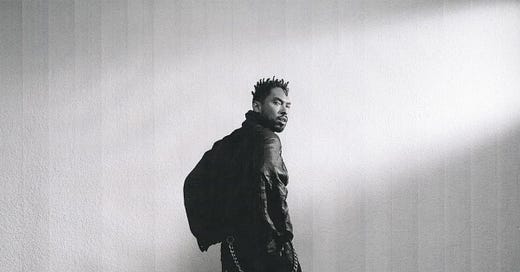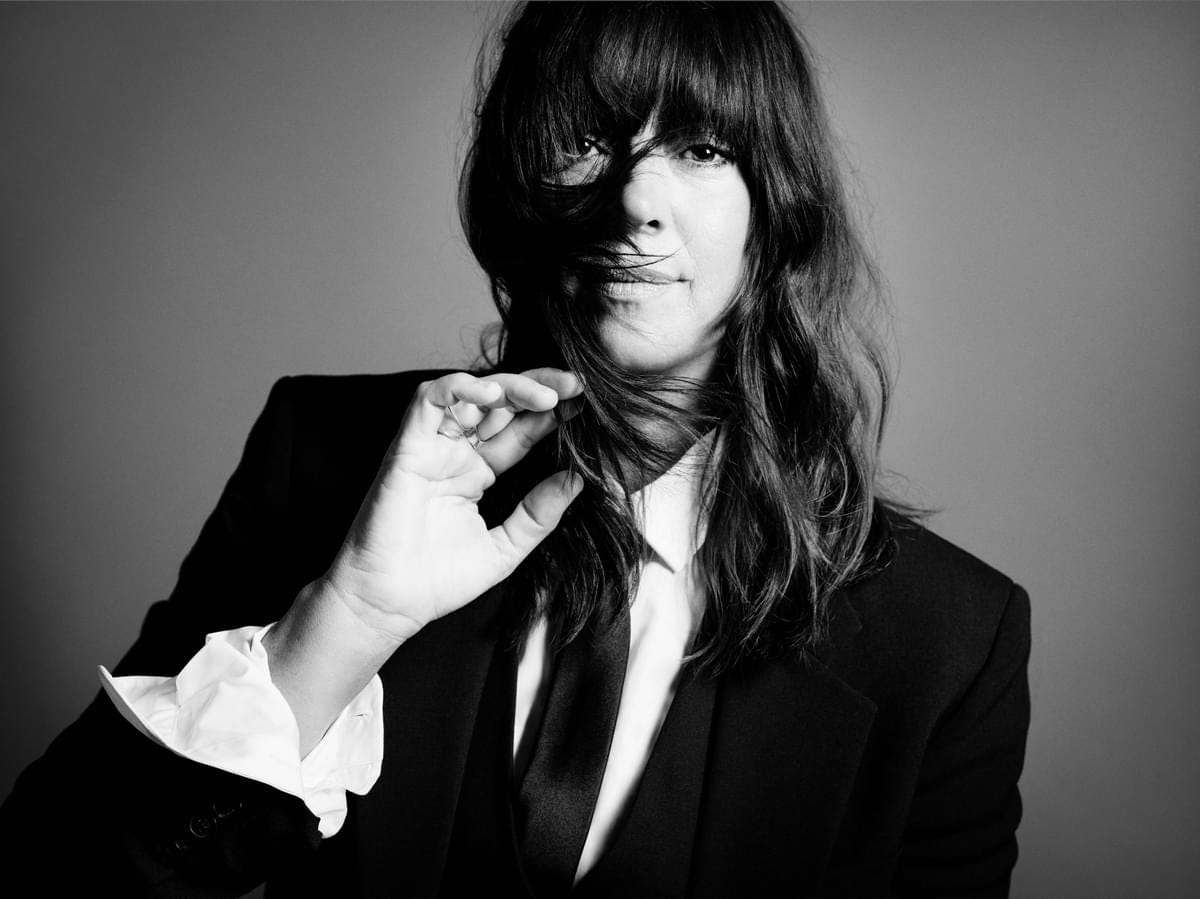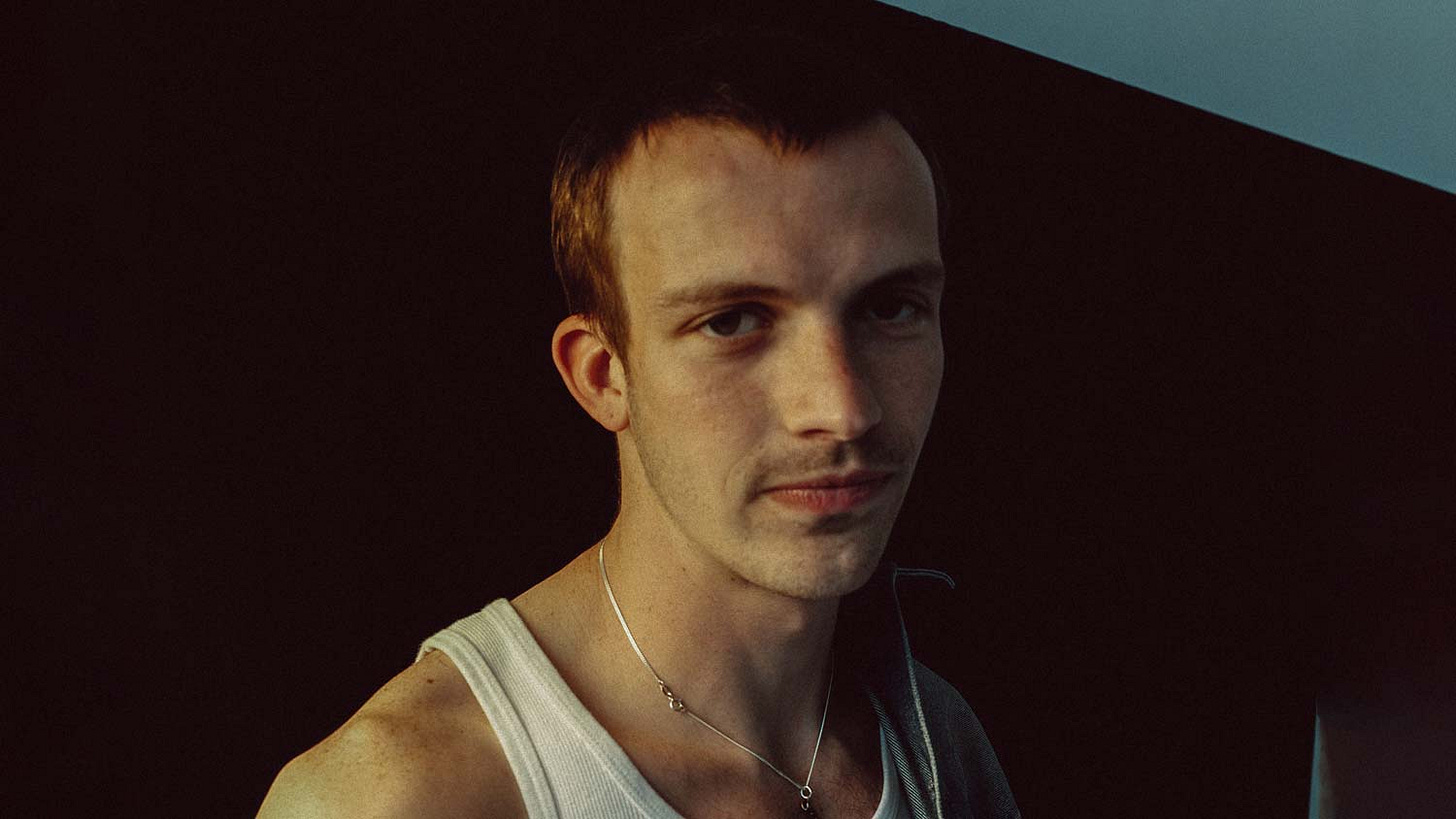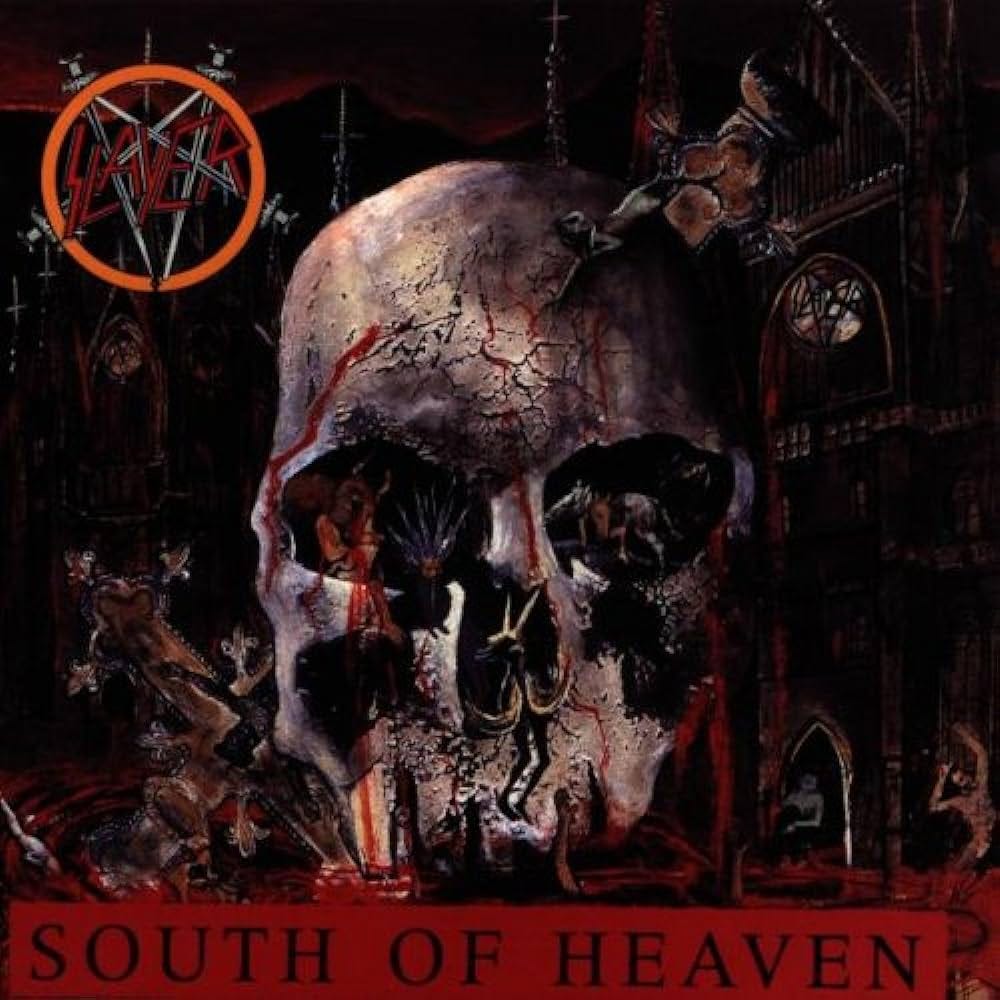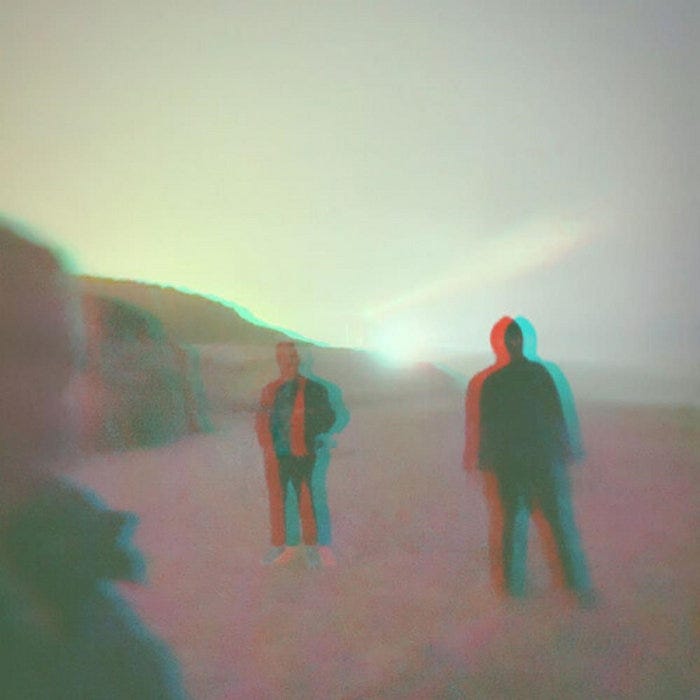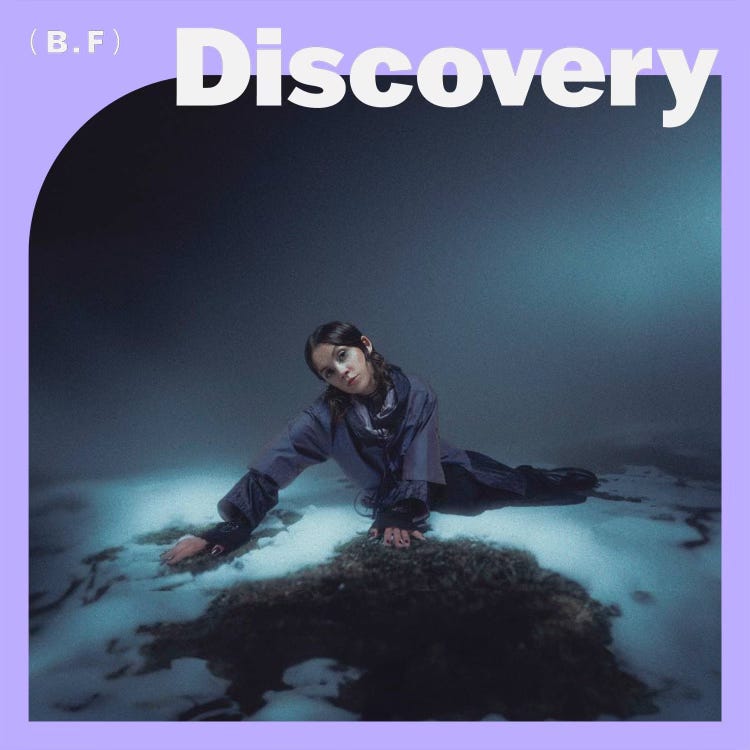Miguel: The heart that bleeds
Miguel is walking on air, not for moments but for minutes. And yet he sings. That voice, a conduit for sensuality that has remained timeless and unmistakable since the turn of the millennium, is somehow impervious to pain. It transcends his sweat-soaked back and his vest streaked with blood; to sing, despite it all, is a statement of Miguel’s astonishing capacity to endure.
The exploration of pain’s potential from an artist who is the paragon of pleasure is intentionally jarring. His act of suspension was an announcement for his fifth album, Viscera, a spectacle for an invited audience which interrogates our relationship to pain as readily as it dismantles the world’s expectations of Miguel himself and the artist he has evolved to be.
“I don’t know who’s going to stick around after this…” he reflects. “I’m sure you’ve heard ‘Rope’?” It’s the track he performed at the Viscera Experience through gritted teeth and controlled breath. Compared to his usual sonic hedonism, painting in bold and unpredictable strokes, “Rope” is astonishingly simple: Miguel is alone, backed only by the gentle ushering of a guitar and the snap of fingers; its solitude is such that the emptiness of the room can be felt as if it were an instrument in its own right. His lyrics are dark: “I’m hanging from the ceiling / Rope around my neck / I’m hanging onto something / The walls are closing in.”
It reflects an era of emotional turbulence. The seed of the album was planted in 2018 just after a collision of two life-altering events: losing his grandparents, and his marriage to his then-partner of nearly two decades, Nazanin Mandi. They had met at the age of eighteen on the set of his first music video, “Getcha Hands Up”. Mandi interviewed Miguel for a behind-the-scenes promotional video and ventured the question: “All the ladies want to know, do you have a girlfriend?” The story goes that he smiled and told her, in no uncertain terms, “No, but I’m looking for one.” The pair embodied RnB’s fantasy: that forever might be more than a one-night promise.
“It was my first time experiencing loss,” he reflects. “My grandparents were the glue that held my father’s side of my family together, which is where I experienced tradition and close family bonds. My grandmother on my mom’s side was just diagnosed and was also sick, and here I was getting married and starting this new chapter in my life. It was a lot, and I think it started in a place of dealing with grief that I hadn’t processed yet; it was really confusing because I felt that I should be happy. It started in a place of wanting to process those feelings and emotions in a healthy way.”
In 2021, after three years of marriage, Miguel and Mandi announced their separation. He is intentionally vague about “Rope” and the parallels it shares with his life: “I was processing the end of something. There’s hope there, but it’s almost hope from faith – hope for hope’s sake, having to accept you have nothing to hold onto. That’s why at the end of the song, it’s like: “I know I’m gonna be okay / A little help from my friends / On the edge of infinity”. I had to hold onto faith to keep pushing through, because for whatever reason, it was a really confusing time.”
Cat Power and the church of Bob Dylan
In the ultimate tribute to a musical hero, Cat Power's latest release commits to record her recreation of Bob Dylan's famous - and long-misnamed Royal Albert Hall Concert. The original concert - actually held at the Manchester Free Trade Hall in May 1966 but known as the “Royal Albert Hall Concert” due to a mislabeled bootleg- saw a 25-year-old Dylan switch from acoustic to electric midway through the show, angering the folk purists and creating one of rock-and-roll's most iconic moments.
Marshall kept the first half of her set entirely acoustic - just like Dylan - and switched to electric for the second half with a full band that included guitarist Arsun Sorrenti, bassist Erik Paparozzi and drummer Josh Adams. There's even a nod to the moment from the original concert, where an audience member shouts out “Judas!” before “Like A Rolling Stone”.
Himself a Dylan superfan - and proud owner of every single official vinyl release by the great man - Best Fit's Rich Thane met up with Marshall to talk about their respective journeys to the church of Bob.
BEST FIT: How did you first discover Bob Dylan?
My dad was a singer and he had his bands and his songs and his lifestyle and his records and his music and a lot of basketball. And my mom was really into Ziggy Stardust; she changed her name to Ziggy, had a full Ziggy hairdo. And my stepdad was already in the picture, he knew both of them, and he was in this whole Southern rock thing like The Allman Brothers. My dad was adopted, and my stepdad was also adopted and he was more Stones, Dylan, Led Zeppelin, Love, Bob Marley. My mom was more funk: she liked The Stones and shit like that too but she was more tripped out.
Whenever the adults talked about Dylan, it was always about how his voice wasn't good. I didn't understand why they would talk shit about him but then I learned that it’s because they're all musicians and a lot of musicians like to talk shit about what's good and what's not good and what new record is shit. That's just what they do. That's what we all do. But you know, everybody knows everything about everything all the time. Especially the biggest fan of course.
Everybody's the biggest Bob Dylan fans but I just love the guy because anytime his songs would come on I didn't notice that his voice sounded bad or whatever. I noticed that his lyrics were fun. When rap started later on, you know, with Sugar Hill Gang, I felt like that reminded me of Dylan and when I started learning about punk, it reminded me about Dylan because of the context of the words.
If Bob Dylan comes over for dinner, what are you cooking?
Probably a lot of shit, a lot of stuff. I’d probably cook a baked fish you know, in the parchment paper. Nice, fresh poached red snapper or something with a little white wine and tab of butter. And then I’d probably bake a lot of garlic with some orange peel and with some sort of oysters, probably from Baja, California. Some champagne. Maybe from Jay Z's company. And then my Chinese ginger, maple syrup, garlic, string beans. And my twice baked mash with cayenne, creme fresh, chives and then my jalapeño, fresh corn muffins. And cherry apple pie. Or fried chicken or maybe a black-eyed pea burrito with the coriander chutney and mixed with creme fraiche, fried chicken burrito. Maybe some sushi. Eggs with caviar. On brioche.
David Duchovny’s Nine Songs
Given his rich acting career, it shouldn’t be a surprise that David Duchovny is a master at remembering a line. Duchovny’s love of detail has defined his artistic path. Having made his name as an incredible lead actor with The X-Files and Californication, his smaller roles, from Twin Peaks’ Denise Bryson to J.P. Prewitt, the reclusive hand model in Zoolander, revealed both his playfulness and a natural ability to steal the show.
In the last decade he’s been spreading artistic wings even further, writing six novels and three albums. 2015’s Hell or Highwater was followed by Every Third Thought in 2018 and his latest record Gestureland was released during the pandemic, which he’s finally able to take on tour and brings him to London this week.
When he reflects on his journey as a songwriter, he explains it reminds him of his formative years of musical discovery. “It brings me back to a very young place, which I love. I'm not writing songs lyrically like I'm eighteen, I'm still who I am now at this age. The first song I wrote was in A Minor and the chorus was in A, you don’t know you’re not supposed to do that, but those were the only chords I knew. It's a great artistic experiment and a way for me to keep on butting my head against what I don't know.”
“For me, writing songs is like a journey into a black cave, because I'm not a great musician, I'm a relatively new musician” he explains. “It's an exercise in how limitations are the guardians of art and necessity being the mother of invention. It’s ‘OK, I've got this limited voice - how do I sing with it? I've got this limited musical experience - how do I write songs with that?’”
Here are the Nine Songs that have seen him through his artistic adventures:
Three things to get excited about this week
The artist: There are few acts working today more versatile than Baird. The prolific Baltimore native rolled out his first project, BIRDSONGS, in three parts over the course of four years, a series that dabbled in genres ranging from folk to funk to indie-rock. His credentials are impressive: he’s toured with Dominic Fike, produced for Arlo Parks, been a BROCKHAMPTON feature, and had Dave Longstreth of Dirty Projectors as a mentor. Now based in L.A., his sights are set on a new venture with his brother called The South Hill Experiment. “My brother Gabe and I are aiming to put out 4 projects in 12 months with S/H/E,” Baird tells Best Fit in an email. The project, he says, came together “in the heat of the summer, fervent, sweaty, bright and exploding.” Titled SUNSTRIKES, it’s set to feature Jeff Parker, CARM, and more. “I’m hurtling towards something, what it is isn’t exactly clear,” he says of his musical future. “For me, the best motivation to make music is the joy of making it. That way, it’s self-sustaining.”
The series: The 90s and early aughts are frequently hailed as the heyday of “the boyband.” Scores of documentaries and write-ups have chronicled the rise of groups like NSYNC and the Backstreet Boys. But a new series from BBC journalist Mollie King flips the script and instead dives into the history and intricacies of the period’s girlbands. “Where It’s At: A Short History of Girlbands” brings listeners along through the journeys and careers of TLC, Destiny’s Child, All Saints, and more via in-depth reporting and feature interviews with some of the band members themselves. The first four episodes are streaming now, and the next batch will be up on Nov. 13th. Hot tip: if you only listen to one episode, make it the TLC one.
The video: Australians Daniel Stricker and Byron Spencer have teamed up for a new project, DeepFaith, that bridges the music and art worlds. The pair have been behind projects with Solange, Troye Sivan, and Lady Gaga, and they’re now ramping up a rollout of their own. Last Friday, they released a new single “DADDY,” which explores the queer experience, complex parental relationships, pressure to conform, masculinity, and self-acceptance. Today, the accompanying video drops, an expansive effort that channels psychedelia, techno-utopianism, and queer maximalism across a sprawling range of forms. It’s a visual feat worth the watch from an exciting new collective.
Something Old, Something New
Every week, one of our writers or editors share their recommendations of two records they love - one from the past, one from the present. This week, Will Yarbrough on Slayer’s South of Heaven (1988) and Remote Echoes by Duster (2023).
Nothing tops Reign in Blood. Just ask Slayer. Despite banging heads for 40 years, these Southern Californians are still arguably the poster child for thrash metal. But back in 1988, after saddling back up with shoeless sensei Rick Rubin, they decided to switch gears.
South of Heaven doesn't exactly meet anyone's definition of slow. "Silent Scream" is anything but, howling like a prisoner who's tied to the mast of a battered pirate ship. But this album proved that speed wasn't the only weapon in Slayer's arsenal. "Live Undead" chugs heavy metal well before Metallica hit paydirt, while "Spilling Blood" ushers in an eerie procession of synths and (checks notes) acoustic guitar?
The gamble paid off. South of Heaven actually outcharted Slayer's blistering opus. Still, fans remain divided over the album's more deliberate descent into insanity. Heck, even the band couldn't agree on playing "Ghost of War". But Kerry King was being too harsh when he blamed his "lackluster" riffs on getting married. When he's not hammering out the framework for death metal, he's firing off solos that flick faster than the devil's tongue.
Yes; their stubborn obsession with Nazism is more problematic than ever. But I don't listen to Slayer for the lyrics and neither should you. Instead, come to get your skull bashed in by Dave Lombardo, who's a master in the dark art of drumming. Even his ghost notes could knock stars from the sky. Slayer would commit far more egregious sins, but South of Heaven proved they weren't just a high-speed killing machine. In order to see the light, first, you must die.
Out of all the bands who emerged from the Pacific Northwest during the 90s, somehow, Duster was the furthest ahead of the times. The San Jose trio enjoyed a blip of buzz before fading into obscurity alongside slowcore's other pioneers. But the world has since caught up to Duster, thanks to collectors on Discogs, who treat their albums like expensive, collectible, precious time capsules.
Normally, I wouldn't drag you out of bed for something like Remote Echoes. This isn't a new album but a collection of demos that've been collecting *ahem* dust for five years. Several tracks have already made the rounds (albeit under different aliases), though there's room for surprises. The way "Darby" speeds through one of their stone-cold classics could pass for Guided By Voices, while "Country Heather" confirms my suspicion that these guys could make a killer country album in their sleep.
Remote Echoes deserves your time, though, because it gives us more of what Duster does best. "Drink wine, smoke weed", coos Cannan Dove Amber, still crusty with sleep. Sure, some songs barely count as sketches. "Testphase" slips away like a balloon through a child's fingers. But why would we expect anything less? After all, this is the band that turned cheap recording equipment into a fashionable aesthetic. Besides, it's nice to hear ex-drummer Jason Albertini's muffled footsteps again. "Lost Time" radiates with the warmth of an old friend, smothered in fuzz that peels away slower than paint.
Who knows when we'll hear from Duster again. The last time this band released two albums in quick succession, they disappeared for 20 years. But if this is their final transmission, they won't have left without a trace. Their influence echoes across indie rock's landscape, from Grouper's medicinal brain fog to lo-fi miracle workers like Alex G. They took their sweet time, but by staying slow and steady, Duster finally won the space race.
Listen to the week in new music by following our Discovery playlist
Dropping at midnight every Thursday, follow our 20-track playlist for a taste of the best new music from the most exciting breaking artists.
These are the songs our editors and writers have on repeat right now, taken from the hundreds of tracks released in the last seven days. Leading the selection this week are new tracks from Sam Akpro, Bb trickz, Heartworms, Essence Martins, Milan Ring, and coverstar Maud.

